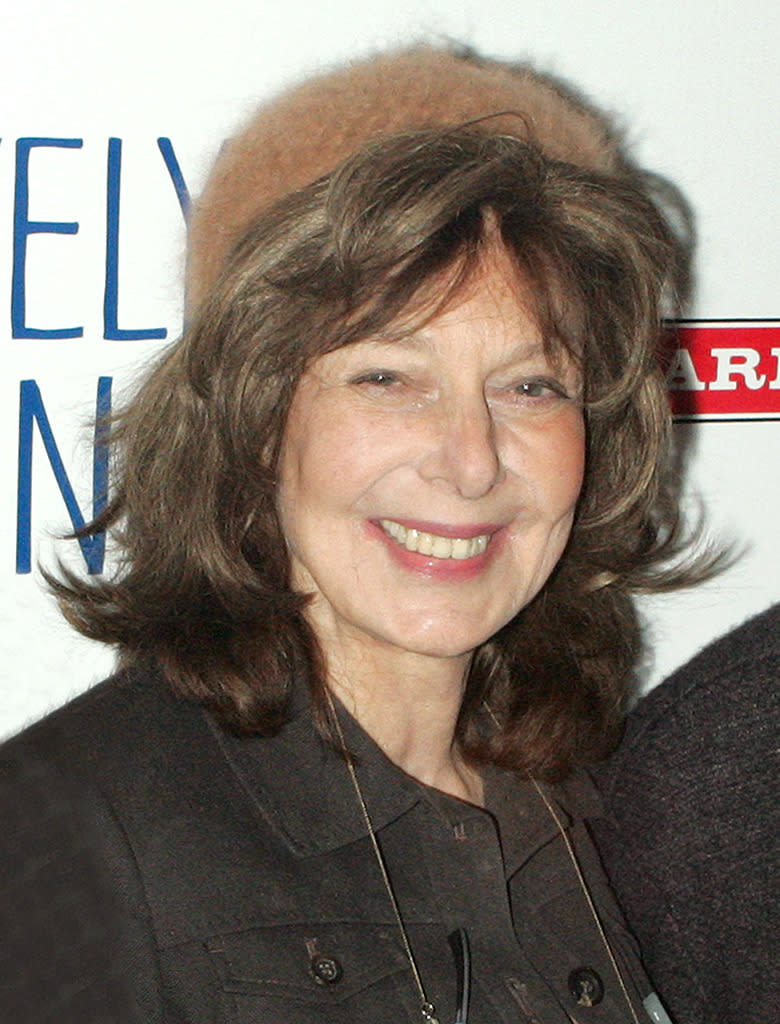Elaine May Is Getting a Writers Guild Honor This Weekend — Here's Why You Should Worship This Comedy Legend

Elaine May on set in 1971 (Everett)
Richard Burton knew from stunning brunettes. Yet in the 1960s when he encountered Elaine May, he was less smitten than scared. The Welsh thespian wrote in his diary, “Elaine was formidable….one of the most intelligent, beautiful and witty women I had ever met. I hoped I would never see her again.”
Were Burton still living, he couldn’t avoid her. That’s because May — comedy pioneer, half of the influential improv duo Nichols and May, director, screenwriter, and near-mythical script doctor — is everywhere this season. And it’s about time.
Her American Masters documentary on comedy partner Mike Nichols premiered last month on PBS. Woody Allen recently announced that May, an enormous influence on his comedy and career, will co-star — with Miley Cyrus (!) — in a television series he is developing for Amazon. On Feb. 13, the Writers Guild of America will honor the polymath, 83, with its Laurel Award in Los Angeles. And there are persistent whispers that May and filmmaker Stanley Donen (Singin’ in the Rain), her longtime romantic partner, had written a comedy that Nichols was slated to produce before his death in 2014.
May’s influence on modern screen comedy remains frustratingly underrated. Within a decade of her professional breakup with Nichols in 1961, he flourished in the mainstream of pop culture, while she bobbed along in the eddies. May made her directorial debut in 1970 with the criminally under-known A New Leaf, which she also wrote and starred in. She directed two more films before writing and directing the notorious box-office bomb Ishtar, the ruefully funny and much-maligned tale of American bumblers (Warren Beatty and Dustin Hoffman) entangled with revolutionaries and the CIA. Its failure to earn back its $55 million budget brought May’s directing career to a premature halt, but she continued to be a prolific writer, penning Beatty’s comedy smash Heaven Can Wait and Nichols’ hits The Birdcage and Primary Colors. All were howlingly funny and unexpectedly trenchant.

May in 2011 (Photo by Jim Spellman/WireImage)
Unknowable is exactly how many screenplays May saved as a script doctor. When Beatty was having trouble with the script of Reds, he turned to her for help. He wasn’t the only one who sought out her services. For the comedy classic Tootsie, she created the Bill Murray character, who delivers the film’s most explosively funny lines. She reportedly worked on the scripts of Dangerous Minds, Labyrinth and many others that remain undisclosed. While no one has ever confirmed whether she contributed to Nichols’ 1988 Wall Street comedy Working Girl, many people, myself included, see her sure hand at work: Several scenes bear her rhythms, especially the one where Melanie Griffith’s Tess comes home to find her fiancé (Alec Baldwin) in bed with another woman. “I can explain,“ he cheerfully reassures her.
“Most writers in Hollywood would kill for a résumé of just the films she’s doctored and not taken credit on,” says an Oscar-nominated screenwriter who spoke on the condition of anonymity.
###

Nichols & May in 1958 (NBC/Getty)
While May’s American Masters documentary is about Nichols, it offers valuable insights into May herself. He was a German refugee who understood body English before he could comprehend actual English. She was the daughter of Yiddish theater director Jack Berlin and appeared in many of his plays. (Although most sources say she was born in Philadelphia, lately she’s told journalists she was born in Chicago.) Nichols went to the University of Chicago because it didn’t require college boards for admission; May, because the university did not require a high school diploma.
At Chicago, their paths crossed in the improv group the Compass Players, some of whose members went on to found Second City. Thrown onstage without idea or purpose, they spontaneously created dramatic and comedic encounters. “Elaine used to say, ‘When it doubt, seduce,’” Nichols recalls in the documentary. Together the pair stripped behavior down to its atomic weight, finding that most human encounters could be classified as seductions, negotiations, or fights.
Between 1958 and 1961, Nichols and May transformed comedy from standup to standoff, influencing subsequent generations of entertainers from Woody Allen and Steve Martin to nearly everyone on Saturday Night Live. Variety dubbed Nichols & May “the hipster’s hipsters.” They stunned audiences at clubs, on recordings, and at the 1959 Emmys. Watch the clip below:
By 1961, May wanted out. While Nichols segued into directing for stage and screen, May wrote plays (A Matter of Position) and screenplays (Such Good Friends.)
In the Nichols documentary, there’s a clip that sums up their act, their friendship and their cockeyed comic tone. It’s of May paying tribute to her former partner at the Kennedy Center where he was an honoree: “Mike makes movies that have relevance,” she said, mock-seriously, “but they’re so much fun, they’re enjoyable as trash.”

May and Walter Matthau in ‘A New Leaf’ (Everett)
She could say the same about her own films. These movies, which consistently trade in betrayal within marriage (A New Leaf, The Heartbreak Kid) and between friends (Mikey & Nicky, Ishtar), inventory the varieties of male narcissism and self-deceit. These themes, plus May’s patented tone of comic discomfort, likewise characterize her screenplays for Beatty and Nichols (see Heaven Can Wait and Primary Colors, both of which earned her Oscar nominations).
A newbie to May should start with Leaf and Kid, starring Walter Matthau and Charles Grodin, respectively, as suave bullies prepared to unburden themselves of new wives by Day 2 of their honeymoons. May plays the klutzy botanist in the former; her daughter, Jeannie Berlin, the bride in the latter. Cybill Shepherd, in her most effective screen performance, is Kid’s bored blonde tease flirting with Grodin just because she can.

Dustin Hoffman and Warren Beatty in ‘Ishtar’ (Everett)
Mikey & Nicky stars Peter Falk and John Cassavetes as petty mobsters and friends dancing around the fact that one is hired to kill the other. Ishtar features Beatty and Dustin Hoffman as failed singers who get a gig in Morocco, each withholding the fact that one is in cahoots with an anti-US revolutionary and the other, the CIA. In her choice of difficult material and her deft work with actors, May is provocative, unsettling and electric.
No matter that many observers at the time slammed Ishtar. From the perspective of 29 years, its preposterous view of muddled American relations in the Middle East seems oddly prescient. Its failure may have killed her directorial career, but May, however underknown today, is a social satirist ranking with Preston Sturges, ever-ready to puncture the inflated egos of millionaires, mobsters, politicians and the institutions they hide behind. That’s one reason May fans — call us May-niacs — are thrilled that an age most movie people take their final bows, she’s staging a comeback. Now is the time, says Writers Guild West president Howard A. Rodman, to “recognize the debt all of us owe to [May’s] brave, groundbreaking, fiercely intelligent, deeply human, relentlessly honest and scorchingly funny work.”

